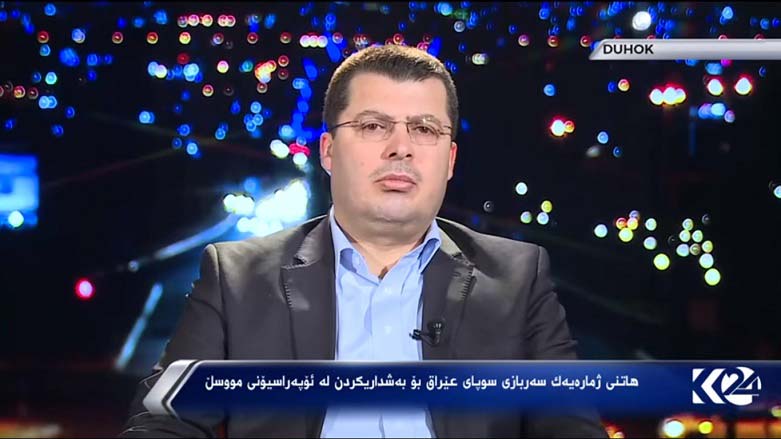Shia militia involvement in Mosul political issue

ERBIL, Kurdistan Region (K24) – Iraqi Shia militia Hashd al-Shaabi may join the operation to liberate Mosul only if requested by the residents of Ninevah (Mosul) Province, although according to a Kurdish official interviewed on Sunday, this is not the case.
In a live broadcasted interview with K24, the head of the Ninevah Provincial Council Bashar Kiki pointed out that Hashd al-Shaabi is not considered part of the Iraqi army. As a result, people do not trust their participation in any future operations to liberate the IS-occupied city and surrounding region. However, their involvement will be accepted if they officially become part of the army.
“Their [Hashd al-Shaabi] contribution is a sensitive question for the people of Nineveh...[so this] might lead to a political issue later on,” Kiki said.
Regarding newly arrived forces in northern Ninevah, Kiki stated that these troops are part of the Iraqi Armies' Fifteenth Division, headed by a military officer from Nineveh Province. Additionally, Kiki noted that their arrival is supervised and coordinated by the US and Kurdistan Regional Government (KRG).
Kiki mentioned that there are 750 Iraqi soldiers in total ready for the Mosul operation, excluding Iraqi Sunni forces from Nineveh (Hashd al-Watani), who have been specially trained to participate in the future offensive. However, troop diversity is not complete.
“There are no Christian soldiers among the troops because we haven’t put shares for each ethnic and religious groups in Iraq to liberate Nineveh,” he said.
“The forces will coordinate with Peshmerga. The two forces [the newly arrived forces and Hashd al-Watani] will play the main role in liberating the territories where they are the majority, [and] to protect their shrines,” Kiki added.
Additionally, Kiki mentioned that cooperation and coordination between the newly arrived forces and Hashd al-Watani will not be completely streamlined. He explained that Hashd al-Watani—led by former Nineveh Governor Athil al-Nujaifi—is considered an “unknown or unrecognized [force]” by the Federal Government of Iraq although US and KRG both recognize them.
“We as the Council of Nineveh believe that it is important for Hashd al-Watani to play a significant role in this offensive as they are from the province,” Kiki emphasized.
Moreover, he explained that Baghdad established Hashd al-Watani but discontinued its aid abruptly. “Unfortunately, Baghdad made it a political issue,” Kiki stated.
Commenting on the presence of Iraqi troops in Nineveh post-operation, Kiki pointed out that the provinces' security should ultimately be left to local police.
“The best spot to start the operation is from the town of al-Shirqat, 120 km (74 miles) south of Ninevah Province, but al-Shirqat is still under Islamic State [IS] control,” he noted.
Regarding the future reconstruction of the Kurdish city of Sinjar, Kiki mentioned that Nineveh Council has sent $90 million USD. “Sinjar needs more financial support since the cities' destruction [was complete],” he said.
Reporting by Mewan Dolamari
Editing by Karzan Sulaivany and Benjamin Kweskin
(Kovan Izzat contributed to this report from Erbil)
